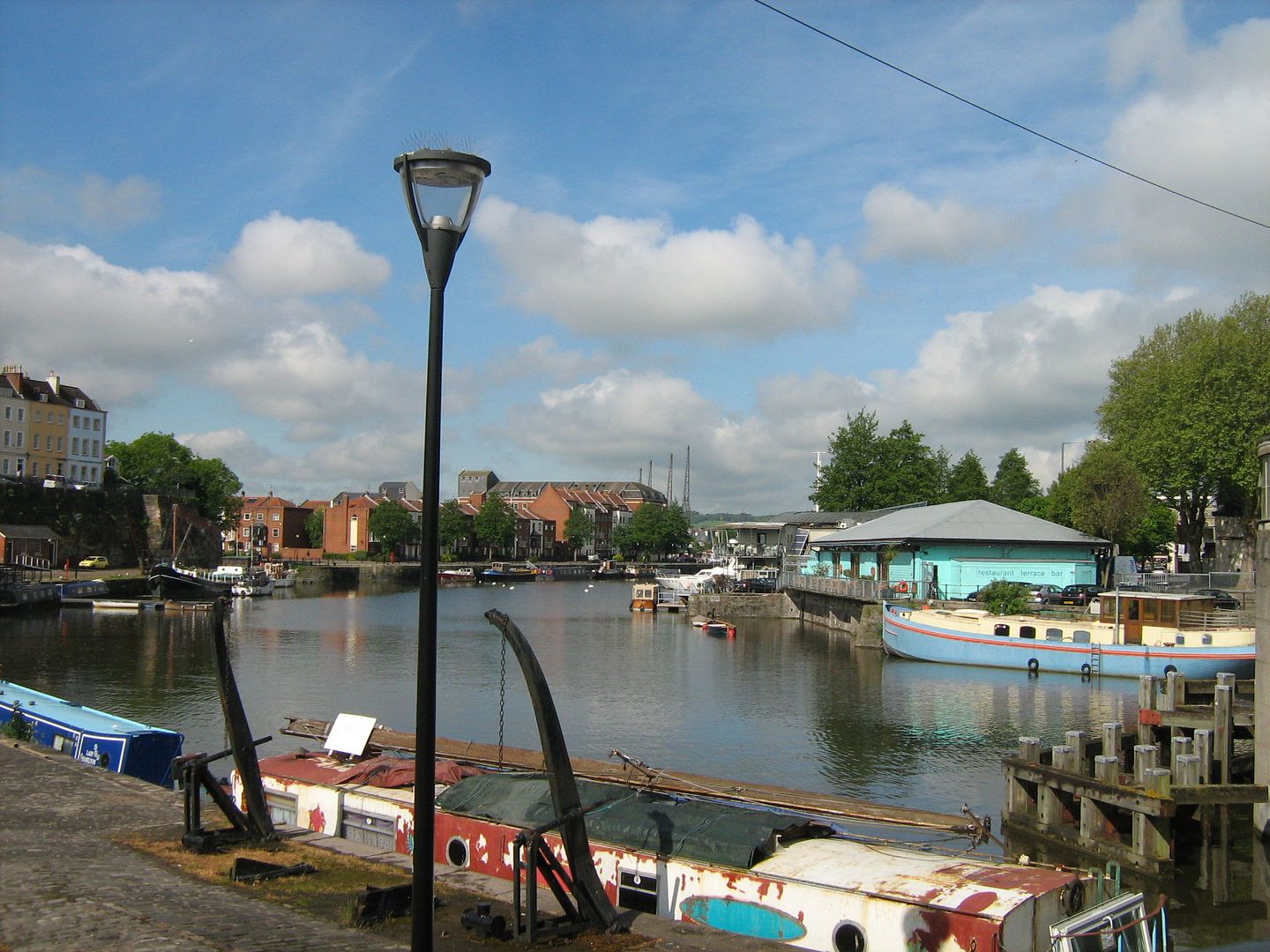 |
| The sun found us in Bristol. |
The forecast the night before was for all-day overcast, but we walked up to Clifton in quite pleasant sunshine the next morning. It was a fair climb to the cliff above the Avon River Gorge-
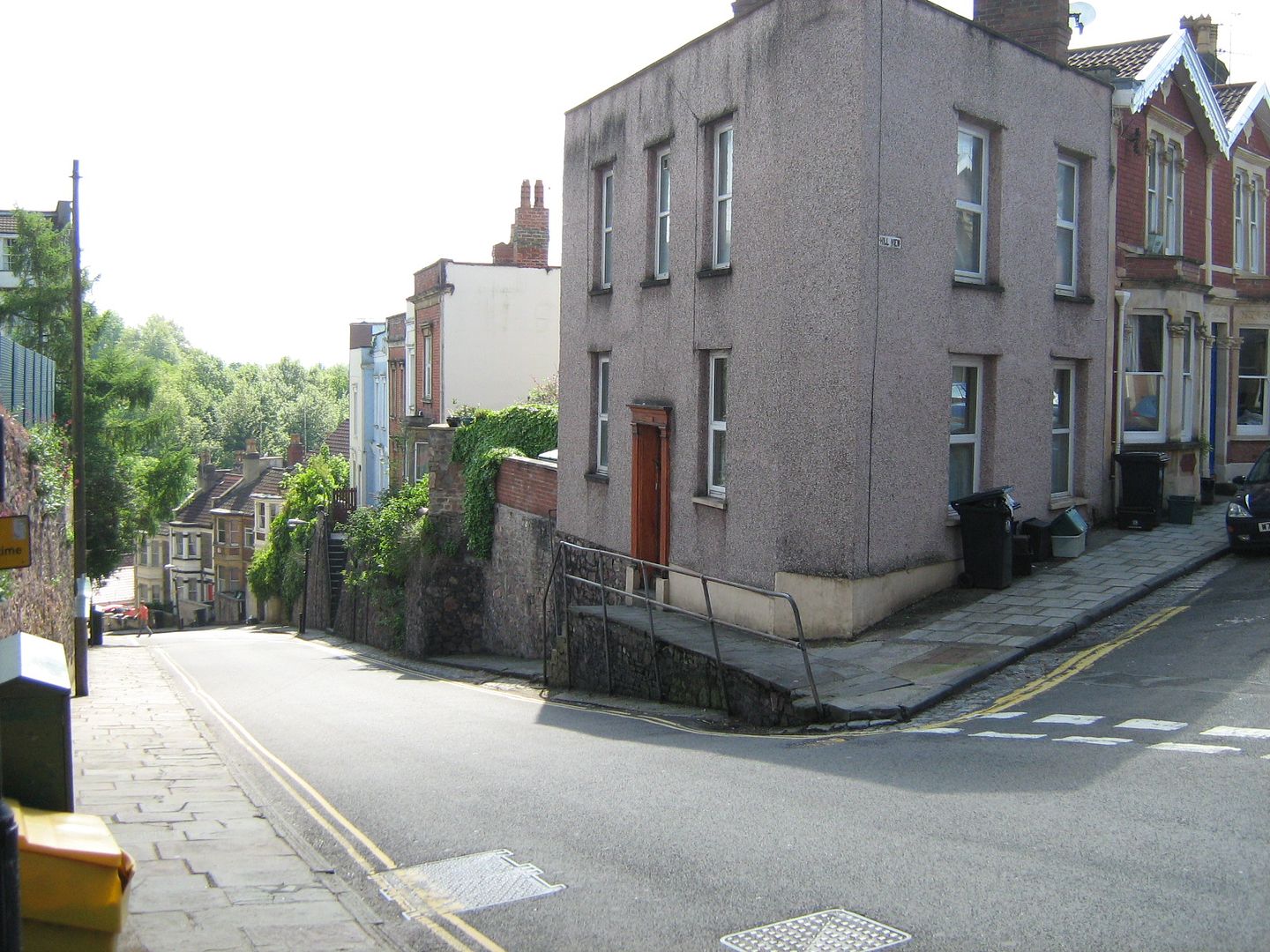 |
| It may look steep- but it's still steeper than it looks! |
The bridge is extremely striking, set high up over the gorge. There were a number of designs submitted for
the bridge, but Brunel's won by having the right combination of strength, cost
and style. The bridge was abandoned
halfway through- the contractors went bankrupt and additional money could not
be raised, but after Brunel's death the bridge was completed in his honor. On time, and on budget, no less. The visitor center lists the repairs that
have been made over the years and they are surprisingly small for a bridge that
will have its 150th birthday next year, and still supports regular automotive
traffic.
 |
| View down the gorge to Bristol from the bridge. |
After walking around the bridge and seeing the visitors center, we followed
a path further up the hill. A group of
small children, closely supervised by their parents, were engaged in sliding
down the hill on the seat of their pants, evidently a traditional local pastime
judging by the high polish put on the rocks by generations of children's
bottoms. (It looks wet, but it's not-
that's just the light reflecting off polished rock.)
The park and tower at the top of the cliff turned out to be the site of yet
another ancient hill fort, and the access point to a cave that led to the
bridge viewing platform we had spotted halfway up the cliff. We bypassed the cave (the admission fee was
a bit steep) but enjoyed the walk around the park, which had more fine views of
the bridge, as well as informative plaques (and we do love our informative
plaques!) talking about the rare plants that grow in the gorge- including some
unique to that area and found nowhere else.
From there we headed down to the M-Shed, a new museum about the city of
Bristol, where we attacked and defeated generous plates of bangers and
mash. Thus fortified, we left the museum
for later and went on to visit the nearby SS Great Britain, the great Brunel
iron ship.
The story of the ship is quite incredible.
First launched in 1843, its iron hull proved incredibly strong, and its design
very adaptable. It started as a luxury
cruise ship, steam with assisting sail. It was later refit for the Australian
immigrant trade, where it took thousands of Britons to a new home Down
Under. In that period, it was primarily
a sailing ship, with steam to assist.
Later, they pulled the engines out completely, and left it purely a
sailing vessel, a cargo carrier of excellent capacity, and yet nearly as fast
as a tea clipper.
In 1933, after 84 years of service, it was damaged in a storm and made port
in the Falkland Islands, only to have the owners decide it was uneconomical to
repair. It was scuttled in a shallow
bay, where it became known to Falklanders as a good place to go for a picnic,
or to find enormous mussels growing on the hull.
Over the years, there were several people who looked at salvage, and in
1970, an effort was finally made. The
hull above the waterline was intact, but below the waterline it was sadly
rusted, in places holed or only a millimeter thick. The crack was patched with
plywood and mattresses donated by the Falklander community, and the boat
successfully towed over a submersible pontoon, which was refloated and took the
Britain out of the water for the 8000 mile tow home. The voyage itself was quite a tale, and as
the ship neared the coast of the UK, it picked up an escort of ships and
pleasure boats, which escorted it to the Avonmouth. Now the SS Great Britain needed to be
refloated, because the pontoon was too large to be brought into the river. Some repairs were made to the hull, to permit
the short trip, and then they needed to wait for a high tide...which came on
the original launch date of the ship, 127 years later. The ship was floated up the river before
thousands of cheering spectators, was turned, and then backed gently into the
original drydock where she was built, now her permanent home.
The presentation of the ship was just as interesting as its story. They've laid a glass floor all around the ship at the waterline, and run a few inches of water over it, to make it look like the ship is docked, but then you walk down underneath the surface and can walk around the dry dock and look at the hull under the waterline.
The piping you see is sending a flow of dehumidified air over the hull, to keep it from corroding any more than it already has. We also walked around the excellent museum, and then toured the boat, which has had different parts restored to its appearance from different eras of the ship's working life.
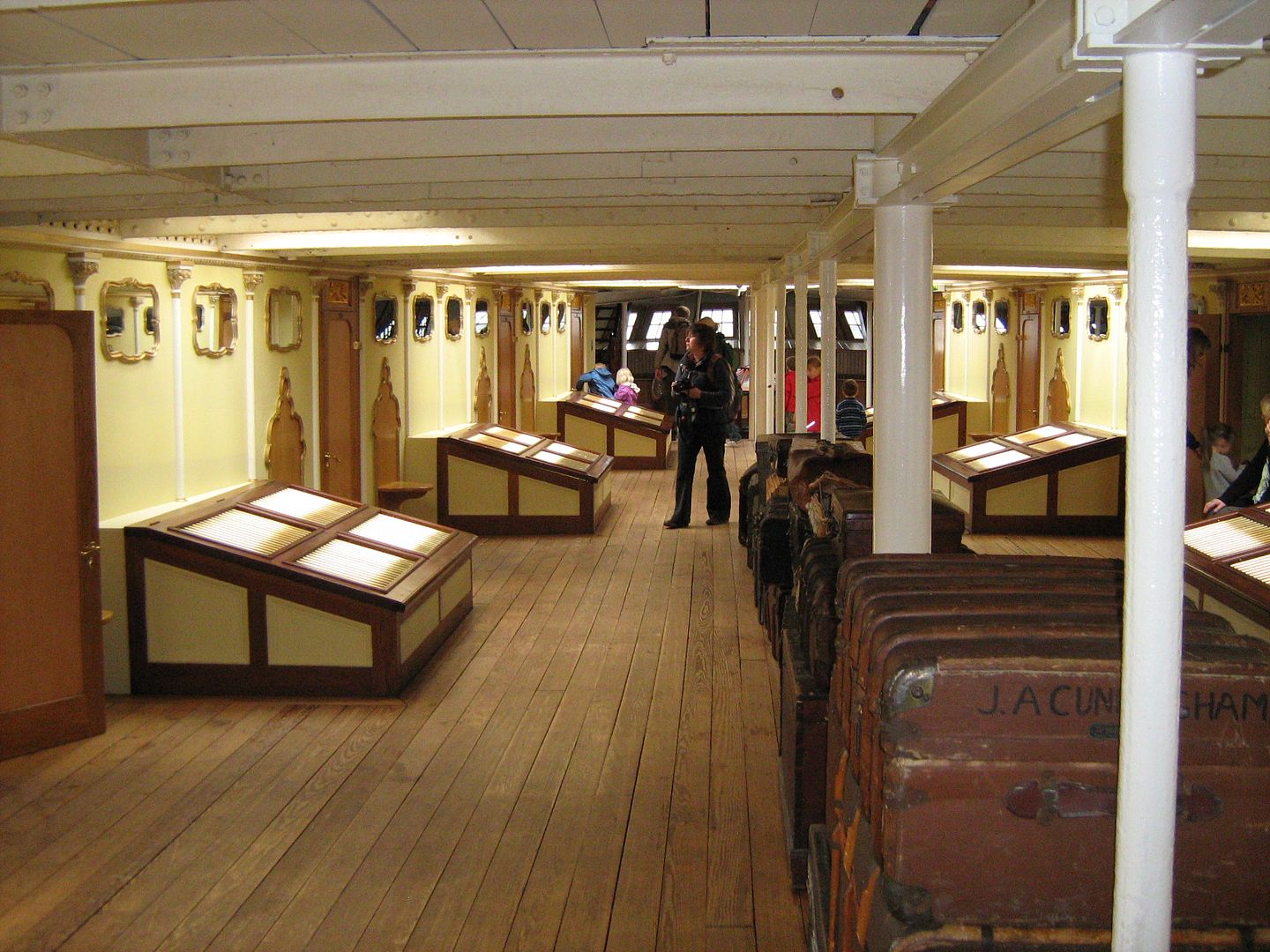 |
| The forward saloon. |
From the Great Britain, we went to the M-Shed, which is a museum of Bristol
life, and quite interesting. Bristol was
of course a busy seaport, and there was a quite candid exhibit talking about
the role of Bristol in the slave trade. We liked the extent to which it celebrated their long history of manufacturing, and the exhibits of present day manufacturing in Bristol. We managed to see most of the displays before the staff started locking doors and giving us expectant looks.
Though it had been dry most of the day, it now started a bit of on and off drizzle, so we walked back to the hotel for a bit, and when the rain stopped a bit later went out for Indian food.
Today's slideshow is quite long- I hope you like bridge pictures!
Though it had been dry most of the day, it now started a bit of on and off drizzle, so we walked back to the hotel for a bit, and when the rain stopped a bit later went out for Indian food.
Today's slideshow is quite long- I hope you like bridge pictures!

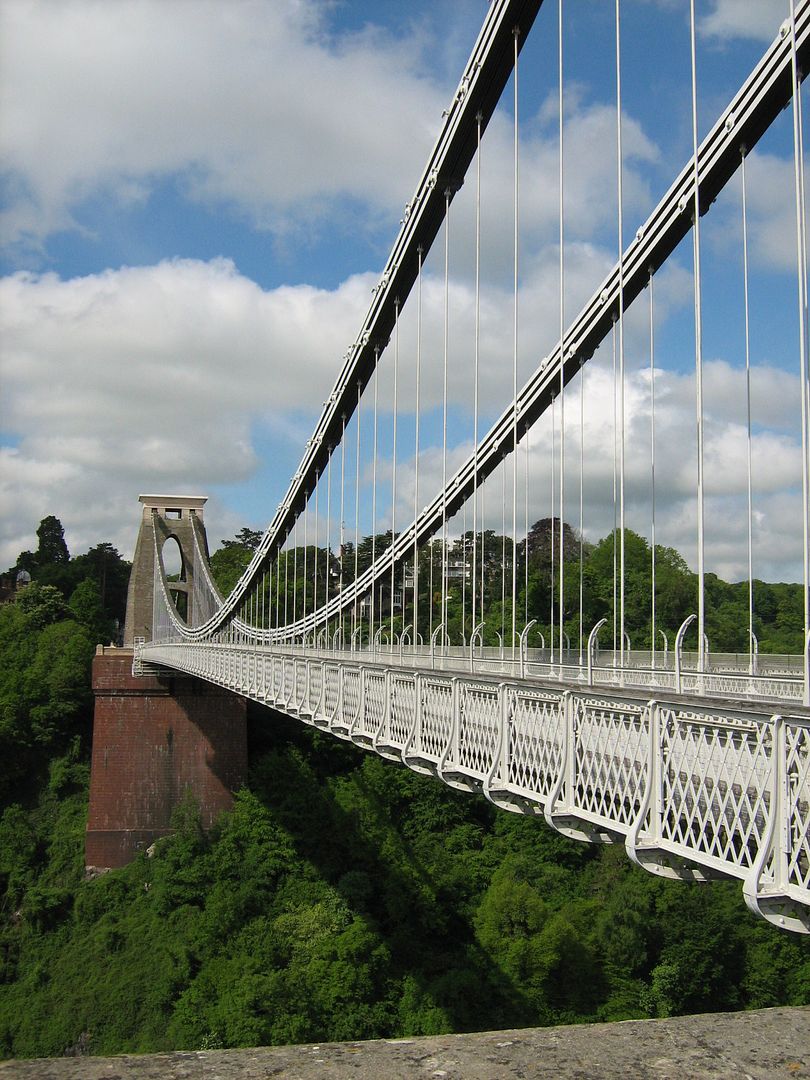
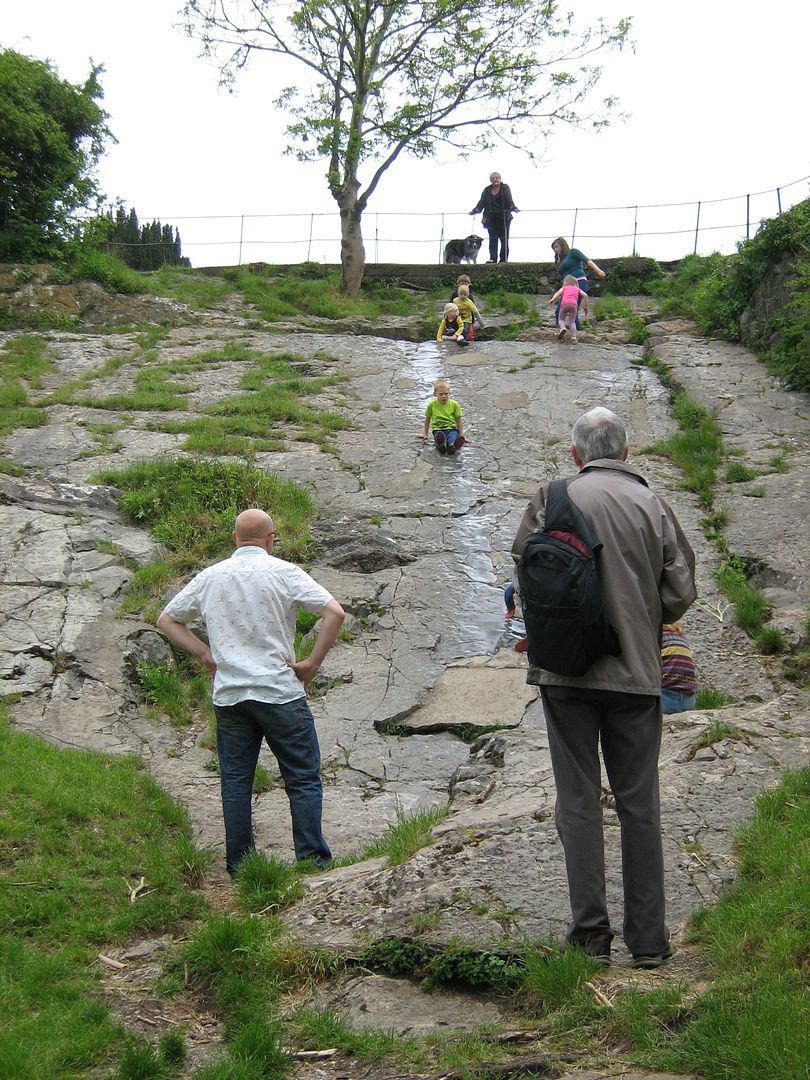
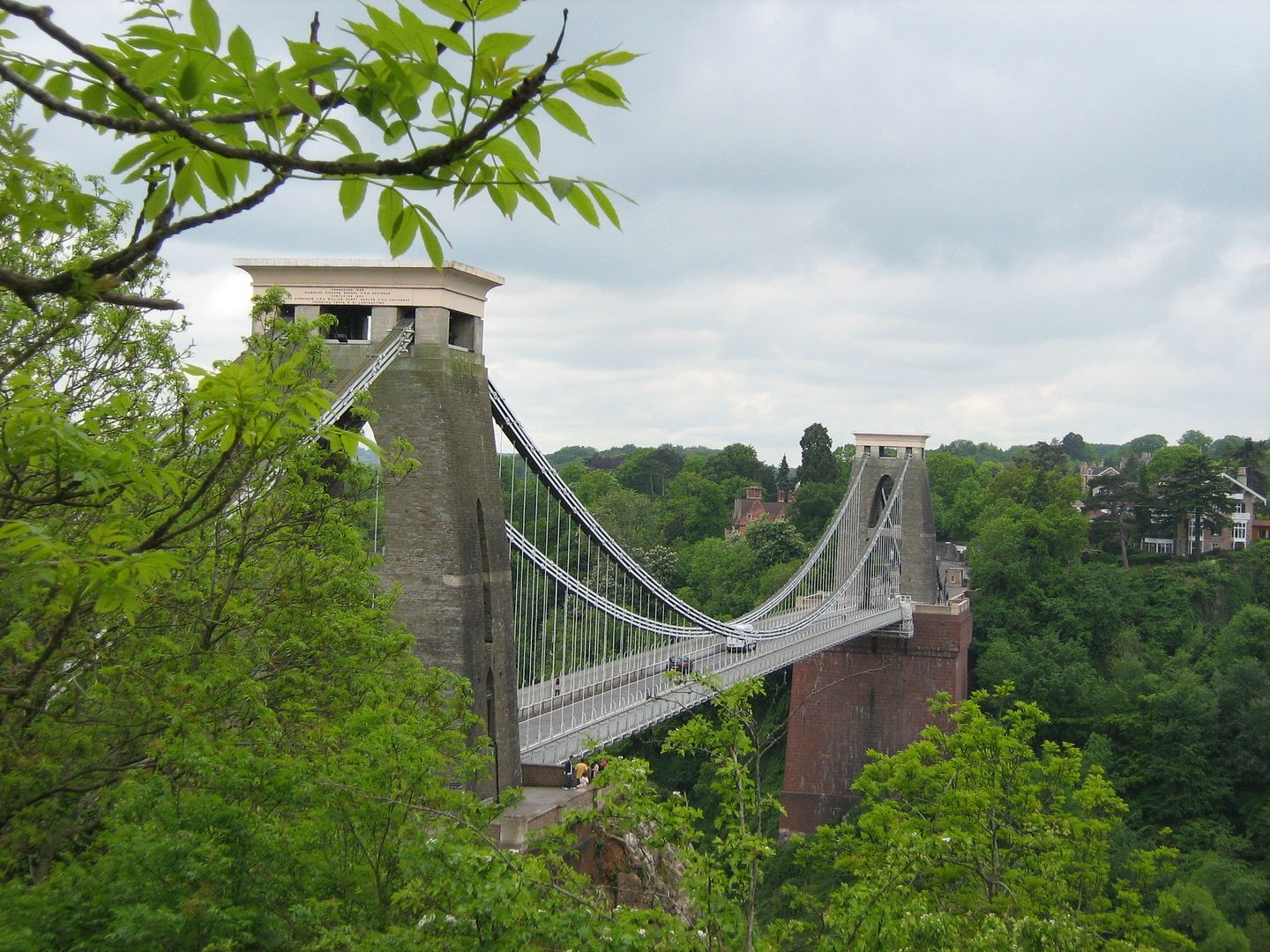
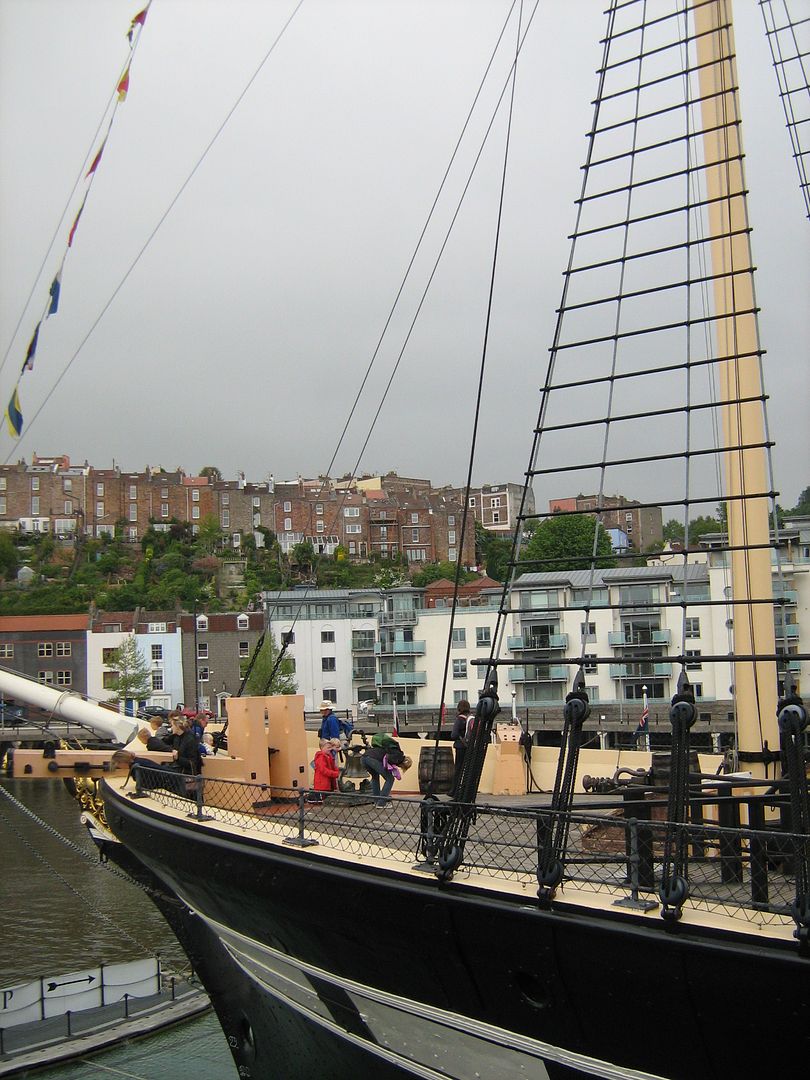
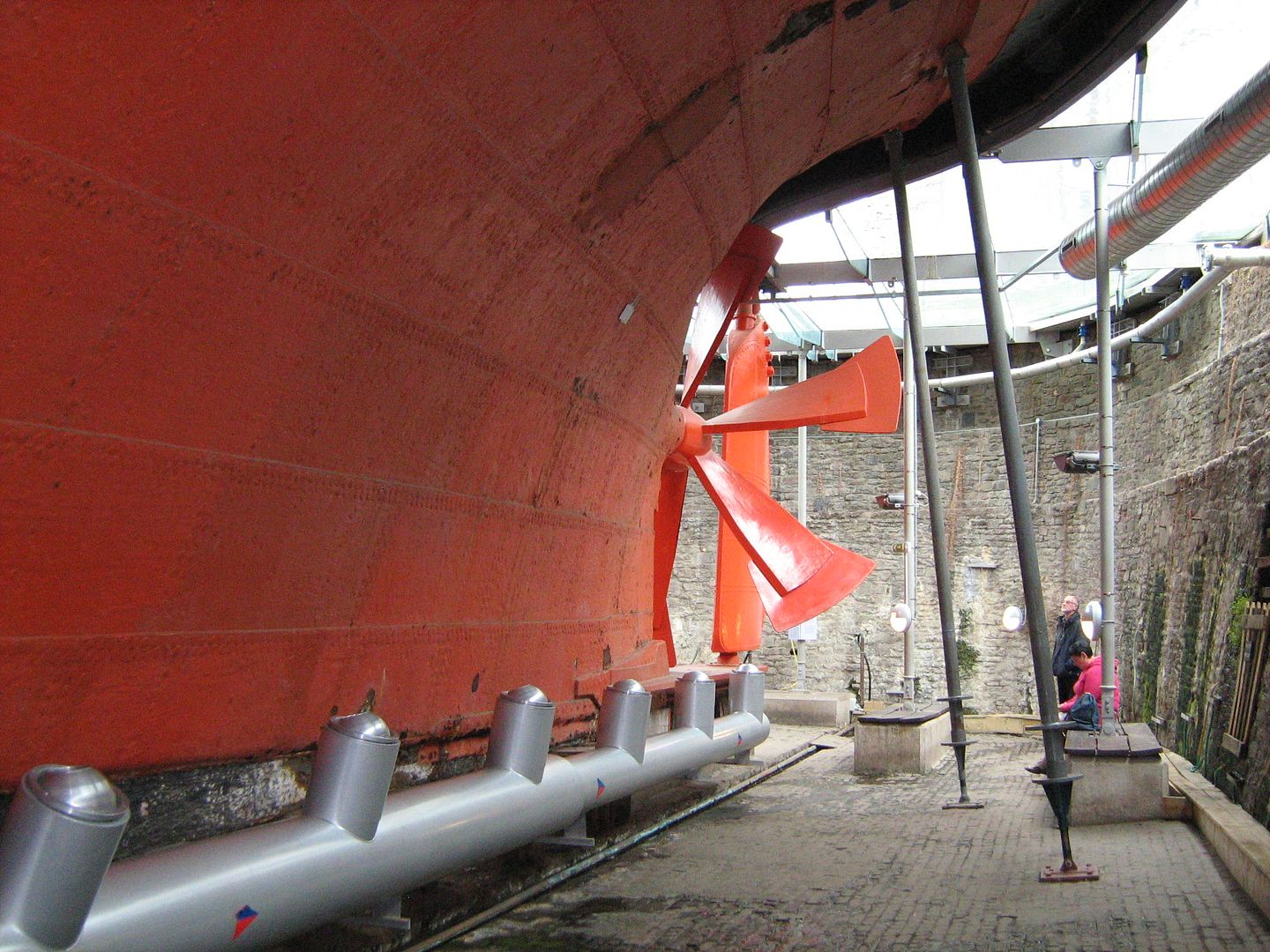
No comments:
Post a Comment